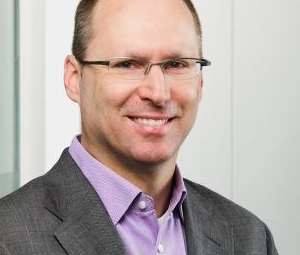HP adapts to new reality of smaller outsourcing deals


The way firms are using outsourcing is undergoing a fundamental shift, with far-reaching consequences for Hewlett-Packard's Enterprise Services arm.
HP EVP and Enterprise Services general manager Mike Nefkens said his division is adapting to a decline in the size of outsourcing contracts.
"The way the business used to work, it used to be the very big horizontal outsourcing [deals] where you take over people. Those really aren't happening that much anymore," Nefkens told ZDNet at the HP Discover conference in Barcelona last month.
"What we're seeing now is much smaller deal sizes and the customers are wanting much more technology expertise versus just labour arbitrage," he said.
"So we have to shift along with that and we're making lots of changes in our portfolio."
Last week, Hewlett-Packard spelt out the impact of the fall in the value of outsourcing contracts. It blamed a net revenue fall at Enterprise Services on "contractual price declines in ongoing contracts due in part to weak public-sector spending and enterprise IT demand" in a regulatory filing to the US Securities and Exchange Commission (SEC).
The net revenue from Enterprise Services, which provides infrastructure, app and business-process consulting, outsourcing and support, decreased 8.2 percent in the 2013 fiscal year, HP told the SEC.
"We're focused on restructuring and on a ton of training for our people, in regards to our offerings, in regards to the way we deliver and even the way we sell, just for the fact that we've got so much smaller deals now," Nefkens told ZDNet at the Barcelona event.
"We'll be busy with that for the next three or four years."
HP Enterprise Services was created in 2009 from the amalgamation of the company's existing consulting and outsourcing business with services giant EDS, which HP had acquired in 2008 for $13.9bn.
According to Nefkens, Enterprise Services now needs to sign 2,000 deals a year to make the revenue it would previously have generated from 1,000 contracts.
However, he said HP CEO Meg Whitman has highlighted that Enterprise Services, which is in the first year of a five-year transformation, had met all its objectives.
The business has signed over 400 new clients and managed more than 10,000 large-scale transformation or application projects over the year, Nefkens said.
"We see our business growing in big data and security — we see massive growth, much more work there than we've ever had," he said.
"We have a lot of contracts that are expiring that were old EDS contracts that we were using alliance partners for and we're now able to refresh those with HP products and software."
Against those gains, Enterprise Services has also lost some big clients. In October 2012, General Motors said it was taking IT operations back inhouse and hiring some 3,000 HP staff in the process.
However Nefkens said the company had successfully managed those types of situation.
"Those clients caused our revenue to go down but we were actually able to keep our operating margins moving in the right direction while we transitioned those businesses. So, a very solid year for us in the first year of the transformation," he said.
One of the biggest changes for Enterprise Services is the amount of technical involvement client companies want in the relationship with HP, according to Nefkens.
"It used to be, 'OK. Just run my stuff'. Now they really want to be involved in the technology, how does it integrate, what are the details. So that's also a change in the way we sell," he said.
As an instance of the type of project his business is now involved in, Nefkens cited the big data system that allows stock-car racing operation NASCAR to gauge public interest during races by monitoring public Twitter and Facebook feeds.
Using Autonomy big-data analytics technology, television producers for example picked up on a high level of interest in one of the racer's wife and children and changed the contents of the live television show to do a special on the driver's family.
"This is a project that we drove for them. We host it and we manage it and the tools are there and we have one or two people on site to drive that. That's a great example but it's not a big outsource deal," Nefkens said.
ZDNet attended the HP Discover conference as a guest of HP.
More on Hewlett-Packard
- HP software chief: Big data role gives Autonomy a boost
- HP's server and storage moves target big data and cloud
- HP's Earth Insights deploys big data tech against eco threats
- In remaking itself, HP delivers the IT means for struggling enterprises to remake themselves
- HP goes for freemium with Propel IT services cloud portal
- HP's Q4 tops estimates, but mixed bag